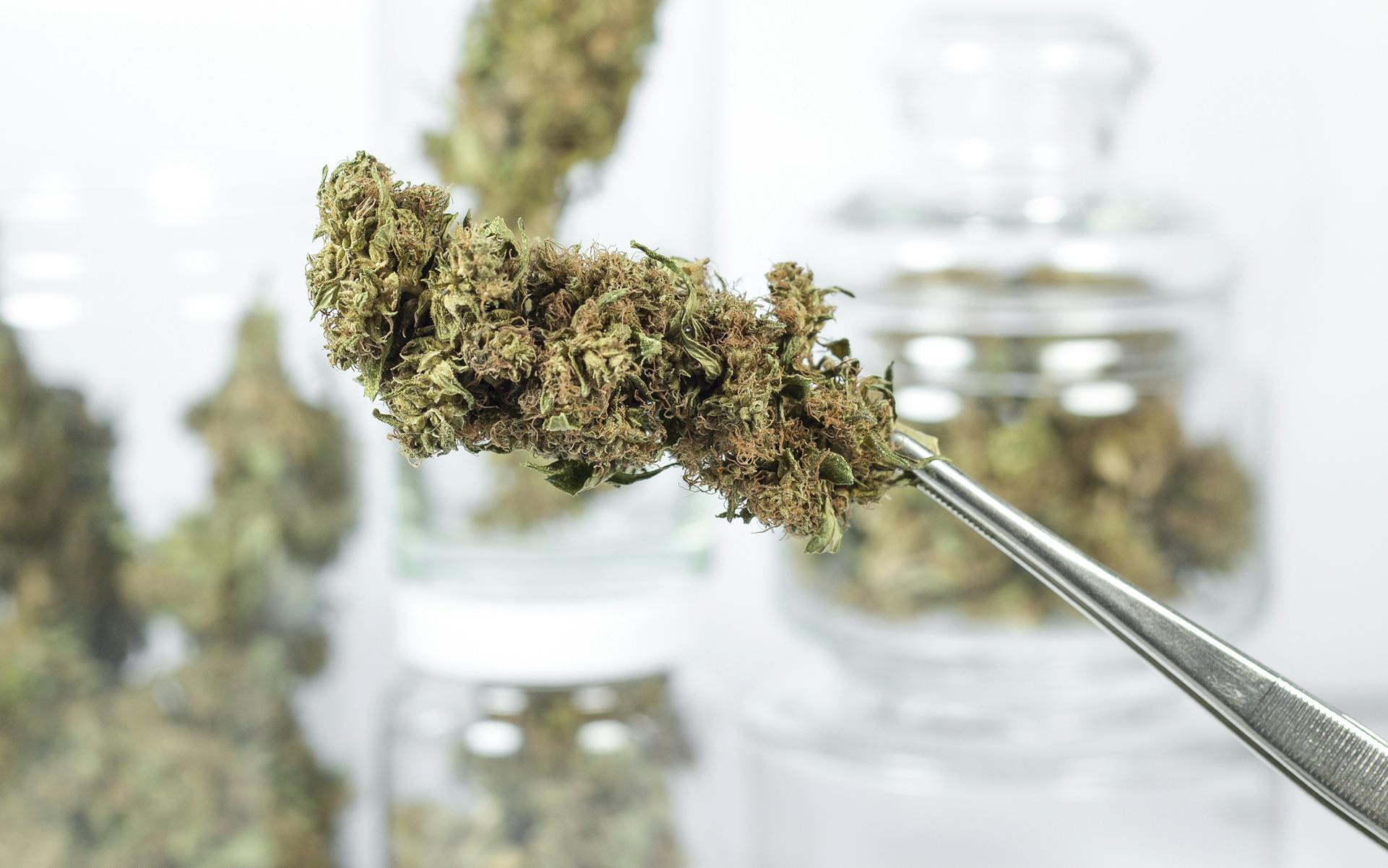U.S. News Updates
Arizona
After a long fight to bring adult-use cannabis to Arizona, the campaign behind Proposition 205 acknowledged defeat. When all was said and done, state voters rejected Proposition 205 by a 52–48 margin. Many are pointing to the heavily-funded opposition campaign as a reason for the loss, noting hefty contributions from noted prohibitionist Sheldon Adelson and fentanyl manufacturer Insys, which is also conducting trials on cannabis pharmaceuticals. Despite the setback, Prop. 205 campaigners say they’re confident Arizona will be among the next round of states to legalize.
California
California voted to legalize cannabis for adult use, but an oversight in the law’s language could cost the state millions in revenue. The upside? A more-than-yearlong tax holiday for some medical patients. The situation arose as the result of a timing mismatch. Prop. 64 creates a 15 percent excise tax on cannabis purchases, which will begin after licenses are issued in 2018. To ease concerns that the tax would raise prices for medical patients, the law exempts patients from a separate, statewide sales tax on cannabis. But under Prop. 64, due to the omission of a target date, the sales-tax exemption takes place immediately—rather than in 2018, as the bill’s author says was intended. As a result, tax-free medical marijuana sales will extend through the end of 2017. The exemption only applies to patients who have obtained a state-issued medical cannabis ID card; patients with only a doctor’s recommendation don’t qualify.
Colorado
It’s now official: Denver will be the first city in the nation to allow the onsite consumption of cannabis in restaurants, art galleries, yoga studios, and other public spaces—as long as they have permission from neighboring businesses. Although the ordinance is technically effective immediately, restaurants must first show they have neighborhood support before obtaining an onsite consumption license. Patrons must bring their own cannabis, and smoking of cannabis will remain prohibited (with the possible exception of outdoor cannabis smoking spaces). Businesses interested in allowing consumption would have to train staff on cannabis and how to identify overly intoxicated customers. They would also need to submit a plan outlining how they intend to prevent underage use. The measure will sunset in 2020 unless extended or renewed. Lawmakers have already amended the measure to prohibit cannabis in alcohol establishments.
Florida
Florida’s Amendment 2 legalized medical marijuana in the Sunshine State, but based on the snail’s pace that the state’s previous cannabis law took to implement, patients will likely face long delays. Florida lawmakers have argued that medical marijuana is a slippery slope to adult-use legalization, and they’ve said the measure will almost certainly come up for debate during next year’s legislative session. The state’s existing CBD law stipulates that patients must wait 90 days after obtaining approval from two separate licensed physicians. Amendment 2 specifies neither that 90-day waiting period nor the need for a recommendation from two physicians, but advocates fear that lawmakers could tack on those provisions to the new law.
Maine
Maine Gov. Paul LePage spoke out strongly against legalization during the election season. And after the the measure squeaked by, the future of cannabis in Maine is on everyone’s mind. Opponents have requested a ballot recount after Question 1’s narrow margin of victory. It won with 50.15 percent of the vote, making it the closest statewide cannabis race this election season. LePage has not yet proclaimed the result of the race, however, saying that he will wait to see what President-elect Donald Trump says about cannabis legalization from a federal standpoint.
Massachusetts
Legalization in Massachusetts passed with flying colors, but advocates aren’t out of the woods just yet. Cities and towns are already exploring how to ban cannabis businesses from their communities, and elected officials have signaled they could review the new law. “The people spoke, and we’re going to honor that, but we need to make sure that we implement this in a way that is consistent with a lot of the rhetoric and the dialogue that took place during the course of the campaign, which is that it will be done in a way that does protect public safety,” said Gov. Charlie Baker, who vocally opposed the measure during the campaign along with Boston Mayor Marty Walsh and state Attorney General Maura Healey. Despite their vehement opposition, the law passed decisively, with 54 percent of voters in favor.
Nevada
Nevada legalization was already having an effect on the state’s criminal justice system just days after the election. County prosecutors in the Las Vegas said shortly after the election that they would stop pursuing charges against people accused of possessing small amounts of cannabis and won’t file any new possession charges. As long as the defendants manage to stay out of trouble until the law becomes effective in 2017, all charges will be dropped. Police, however, say they’ll continue to enforce existing law. After Las Vegas prosecutors made the decision, Reno’s city prosecutor followed suit. Law enforcement officials in Washoe and neighboring Sparks said they’ll take the opposite approach and continue to enforce possession laws until legalization kicks in.
Tennessee
Nashville and Memphis may have passed ordinances to give law enforcement the discretion to hand out lesser citations for the possession of small amounts of cannabis, but state Attorney General Herbert Slatery argues the measures violates state law, making them unenforceable. “A municipal ordinance that attempts to regulate a field that is regulated by state statute cannot stand if it is contradictory to state law,” Slatery said in an opinion issued by his office. The ordinances give police the option of reducing penalties for possession of a half-ounce of cannabis or less to a $50 fine or 10 hours of community service. Under state law, simple possession is a misdemeanor. Nashville officials will continue to enforce the ordinance until further instruction, but Memphis will suspend the measure in light of Slatery’s opinion.
Texas
On the first day of the legislative session, Texas lawmakers, apparently taking note of the legalization’s widespread success elsewhere on Election Day, submitted several proposals to decriminalize the possession of small amounts of cannabis:
- Senate Joint Resolution 17, from Sen. Jose Rodriguez (D-El Paso), would allow voters to decide whether cannabis should be legalized in Texas.
- Senate Joint Resolution 18, also from Sen. Rodriguez, would allow voters to decide whether to legalize medical marijuana if recommended by a physician.
- Senate Bill 170 would change the possession of one ounce or less of cannabis from a criminal offense to a civil one.
- House Bill 81, from Rep. Joseph Moody (D-El Paso), would reduce the penalties for the possession of up to an ounce of cannabis to a civil fine of $250, bypassing jail time and arrests.
- House Bill 82, from Rep. Harold Dutton (D-Houston), would reclassify a conviction for the possession of cannabis from a Class B misdemeanor to a Class C misdemeanor (up to the third conviction).
- House Bill 58, from Rep. James White (R-Woodville), would create a specialty court for first-time marijuana possession offenders in order to conserve law enforcement resources.
Washington, DC
The District of Columbia Council voted on the Medical Marijuana Reciprocity Amendment Act of 2015, introduced last year by Council Member Yvette Alexander to allow patients with a medical marijuana recommendation from their home state to visit dispensaries in the district. It would also allow patients to visit more than one dispensary and would removes the cap on the number of plants cultivators can grow. Current law allows registered patients to visit only one dispensary and no others. This is the first major revision of the medical marijuana law since the district’s program began in 2013. In September, the district raised the medical possession limit from two ounces to four ounces every 30 days.
International News Updates
Italy
A national campaign is drumming up support for a proposal to allow cannabis social clubs as well as decriminalize cannabis possession and cultivation. The mayors of Torino, Parma, and Naples signed on to support the proposal, and supporters have gathered 17,500 signatures in more than 20 cities. The topic of legalization remains controversial, but with the support of public officials such as Mafia expert Roberto Saviano, as well as popular Italian rock musician Vasco Rossi, the movement continues to gain momentum.






